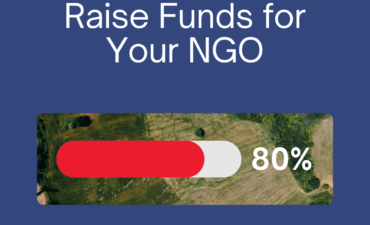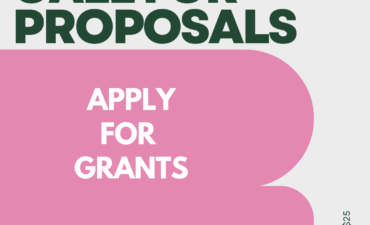Introduction: Sample Proposal on Palliative Care Services for Rural Elderly Patients, as the population of rural areas continues to age, the need for comprehensive and compassionate palliative care services has become increasingly urgent. Elderly patients in these communities often face unique challenges, including limited access to healthcare resources, social isolation, and a higher prevalence of chronic illnesses. This proposal outlines a tailored approach to delivering palliative care that addresses the specific needs of rural elderly patients, emphasizing dignity, comfort, and quality of life. By integrating community resources, enhancing caregiver support, and utilizing telehealth technologies, we aim to provide a holistic model of care that empowers patients and their families while promoting a supportive environment for end-of-life decision-making. Through this initiative, we seek to bridge the gap in palliative care access, ensuring that all elderly individuals, regardless of their location, receive the compassionate care they deserve.
Background on Palliative (Care Sample Proposal on Palliative Care Services for Rural Elderly Patients)
Palliative care is a specialized medical approach that focuses on improving the quality of life for patients with serious illnesses. It addresses physical, emotional, and spiritual needs, emphasizing pain management and support for both patients and their families. Unlike curative treatments, palliative care can be provided alongside other medical interventions, making it a vital component of comprehensive healthcare.
Importance of Addressing the Needs of Rural Elderly Patients (Care Sample Proposal on Palliative Care Services for Rural Elderly Patients)
Rural elderly patients often face significant barriers to accessing healthcare, including geographic isolation, limited availability of specialized services, and a shortage of healthcare providers. These challenges can lead to inadequate pain management and support, resulting in diminished quality of life. Addressing the unique needs of this population is crucial to ensuring they receive appropriate care, feel supported, and maintain their dignity during serious illnesses.
Purpose of the Proposal
The purpose of this proposal is to outline a comprehensive palliative care program specifically designed for rural elderly patients. By focusing on their unique needs, the program aims to improve access to care, enhance support for families, and integrate community resources. This initiative seeks to create a sustainable model that ensures every elderly individual in rural areas receives compassionate and effective palliative care, ultimately promoting better health outcomes and quality of life.
Needs Assessment (Care Sample Proposal on Palliative Care Services for Rural Elderly Patients)
- Demographics of the Rural Elderly Population
The rural elderly population is steadily increasing, with many individuals aged 65 and older comprising a significant portion of these communities. This demographic is often characterized by a higher percentage of individuals living alone, which can lead to increased vulnerability and isolation. Additionally, many rural seniors face economic challenges, with limited access to financial resources, impacting their ability to obtain healthcare and support services.
- Common Health Challenges Faced by This Demographic
Rural elderly patients frequently grapple with chronic health conditions such as heart disease, diabetes, arthritis, and respiratory illnesses. These health issues are often compounded by limited access to specialty care and preventive services. Mental health challenges, including depression and anxiety, are prevalent and can be exacerbated by social isolation, as many lack regular social interaction or community support.
- Current State of Palliative Care Services in Rural Areas
Palliative care services in rural areas are often sparse, with a shortage of healthcare providers trained in this specialized field. Many rural communities have limited access to palliative care programs, resulting in insufficient integration with primary care services. Patients may face long travel distances to access specialized care, which can delay treatment and diminish the quality of care received.
- Gaps in Service Delivery
Significant gaps exist in service delivery, including an inadequate number of trained healthcare professionals and a lack of awareness about palliative care among both patients and providers. Many rural residents are unaware of available services or may not receive timely referrals. Additionally, support for family caregivers is often lacking, leaving them without the resources they need to provide adequate care, which can lead to caregiver burnout and negatively impact patient outcomes.
Goals and Objectives (Care Sample Proposal on Palliative Care Services for Rural Elderly Patients)
- Primary Goal of the Proposal
The primary goal of this proposal is to establish a comprehensive palliative care program tailored specifically for rural elderly patients. This initiative aims to enhance access to quality palliative care, improve the overall well-being of patients, and support their families throughout the care journey, ensuring that every elderly individual in rural areas receives the compassionate and effective care they deserve.
- Specific Objectives
- Increase Access to Palliative Care Services:
Expand the availability of palliative care services in rural communities by developing partnerships with local healthcare providers and utilizing telehealth technology to reach underserved populations.
- Enhance Education and Awareness:
Implement educational programs for healthcare providers and the community to increase awareness of palliative care benefits, ensuring that patients and families understand their options and rights regarding care.
- Support Family Caregivers:
Establish support networks and resources for family caregivers, including training, respite care options, and access to counseling services, to reduce caregiver stress and improve patient outcomes.
- Integrate Community Resources:
Collaborate with local organizations and services to create a network of support that addresses the diverse needs of rural elderly patients, including transportation, nutrition, and mental health services.
- Monitor and Evaluate Program Effectiveness:
Develop a framework for ongoing evaluation of the palliative care program to assess its impact on patient quality of life, caregiver satisfaction, and overall community health outcomes, allowing for continuous improvement and adaptation of services.
Proposed Services (Care Sample Proposal on Palliative Care Services for Rural Elderly Patients)
- Mobile Palliative Care Units and Free Home Visits
To enhance access to palliative care, we propose the implementation of mobile palliative care units that travel to rural communities. These units will provide essential medical care, symptom management, and emotional support directly in patients’ homes. Free home visits will ensure that those with mobility issues or limited access to transportation receive personalized care in a comfortable setting, fostering a sense of security and dignity.
- Telehealth Consultations
Telehealth consultations will be a vital component of our palliative care services, allowing patients to connect with healthcare professionals without the need for extensive travel. This service will provide remote assessments, medication management, and ongoing support for symptom relief. Telehealth can bridge the gap for patients in remote areas, ensuring timely interventions and continuous communication with their care team.
- Community Education and Outreach Programs
We will implement community education and outreach programs to raise awareness about the benefits of palliative care. These initiatives will include workshops, informational sessions, and resource distribution aimed at both healthcare providers and the general public. By informing communities about palliative care options, we can empower patients and families to make informed decisions regarding their healthcare and end-of-life planning.
- Support for Caregivers and Family Members
Recognizing the vital role of caregivers, we will establish support systems specifically designed for family members. This will include training sessions on effective care giving techniques, stress management workshops, and access to respite care services to provide caregivers with much-needed breaks. By offering emotional and practical support, we aim to reduce caregiver burnout and enhance the overall quality of care provided to patients.
Implementation Plan (Care Sample Proposal on Palliative Care Services for Rural Elderly Patients)
- Timeline for Service Rollout
The service rollout will be structured over a 12-month timeline, divided into three phases:
- Phase 1 (Months 1-4): Planning and Infrastructure Development
- Establish project leadership and team structure.
- Secure necessary funding and resources.
- Develop service protocols and guidelines.
- Phase 2 (Months 5-8): Pilot Program Launch
- Launch mobile palliative care units and initiate free home visits in selected rural areas.
- Start telehealth consultations, offering initial training for staff.
- Conduct community education workshops to introduce services.
- Phase 3 (Months 9-12): Program Evaluation and Expansion
- Gather feedback from patients, families, and providers to assess the effectiveness of services.
- Adjust program offerings based on feedback.
- Expand outreach and services to additional rural communities.
- Required Resources (Staff, Training, Materials)
To successfully implement the program, the following resources will be required:
- Staff: A multidisciplinary team including palliative care physicians, nurses, social workers, and trained volunteers.
- Training: Comprehensive training programs for all staff on palliative care principles, telehealth technology, and communication skills.
- Materials: Educational materials for patients and families, medical equipment for mobile units, telehealth technology (software and hardware), and resources for caregiver support.
- Partnerships with Local Healthcare Providers and Organizations
Building partnerships will be crucial for the program’s success. We will collaborate with:
- Local hospitals and clinics to ensure smooth referral processes and shared resources.
- Community organizations, such as senior centers and non-profits, to extend outreach efforts and support networks.
- Universities or training programs to facilitate staff training and volunteer recruitment.
- Community Engagement Strategies
To ensure community involvement and support, we will implement the following strategies:
- Host community meetings to introduce the program, gather input, and address concerns.
- Collaborate with local leaders and influencers to champion the initiative and promote services.
- Utilize social media, newsletters, and local media outlets to disseminate information and updates about services and success stories.
- Create opportunities for community members to volunteer and participate in caregiving support initiatives, fostering a sense of ownership and connection to the program.
Evaluation and Monitoring (Care Sample Proposal on Palliative Care Services for Rural Elderly Patients)
Evaluation and Monitoring Program Matrix
| Evaluation Component | Objective | Measurement Method | Frequency | Responsible Party |
| Access to Services | Increase the number of patients served | Number of home visits and telehealth consultations completed | Monthly | Program Coordinator |
| Patient Outcomes | Improve quality of life for patients | Patient satisfaction surveys and quality of life assessments | Quarterly | Social Worker |
| Caregiver Support | Enhance support for caregivers | Caregiver satisfaction surveys and participation rates in support programs | Biannual | Caregiver Support Coordinator |
| Community Awareness | Raise awareness of palliative care services | Attendance at educational workshops and outreach events | After each event | Outreach Coordinator |
| Program Efficiency | Assess operational efficiency | Review of service delivery times and resource utilization | Monthly | Program Manager |
| Partnership Engagement | Strengthen collaborations with local providers | Number of referrals and partnerships established | Quarterly | Partnership Liaison |
| Feedback Mechanism | Ensure ongoing community input | Community feedback sessions and surveys | Biannual | Evaluation Team |
| Overall Impact | Evaluate the overall effectiveness of the program | Comprehensive program evaluation report including all data collected | Annually | Evaluation Committee |
This matrix will guide the evaluation and monitoring of the proposed palliative care program, ensuring that objectives are met and that adjustments can be made based on data and feedback.
Budget and Funding (Care Sample Proposal on Palliative Care Services for Rural Elderly Patients)
| Budget Category | Description | Estimated Cost |
| Personnel Expenses | ||
| – Program Coordinator | Salary and benefits | $60,000 |
| – Palliative Care Staff | Salaries for nurses and social workers | $120,000 |
| – Training and Development | Staff training programs | $10,000 |
| Equipment and Supplies | ||
| – Mobile Units | Purchase and retrofitting | $150,000 |
| – Medical Equipment | Supplies for home visits | $20,000 |
| – Telehealth Technology | Software and hardware | $15,000 |
| Operational Costs | ||
| – Transportation | Fuel and maintenance for mobile units | $10,000 |
| – Marketing and Outreach | Community education materials | $5,000 |
| Community Engagement | ||
| – Workshops and Events | Costs for hosting educational events | $7,500 |
| Administrative Expenses | ||
| – Office Supplies | General office supplies | $3,000 |
| – Insurance | Liability and vehicle insurance | $8,000 |
| Contingency Fund | 10% of total budget for unforeseen costs | $20,500 |
| Total Budget | $428,000 |
This budget matrix outlines the estimated costs associated with implementing the palliative care program, providing a clear overview of expenses across different categories.
Conclusion
In conclusion, this proposal outlines a comprehensive approach to delivering palliative care services to rural elderly patients, addressing their unique needs and challenges. By implementing mobile units, telehealth consultations, community education, and robust support for caregivers, we aim to enhance access to compassionate care and improve the quality of life for this vulnerable population. Through strategic partnerships and an effective evaluation framework, we can ensure that our services are responsive, efficient, and impactful. With the necessary resources and community engagement, we are committed to making a meaningful difference in the lives of rural elderly patients and their families.
Related Good Reads, Link
Hey, STEAL our Best Premium Content For Absolutely Free, Check Out the Links below
HOPE these will add value to your existing skills and knowledge
Our information bears no cost (it’s absolutely FREE), don’t let valuable information slip away.
Join our community of avid readers who are always in the know. Subscribe to our website; stay connected and engaged with the latest news, trends, and developments by subscribing today.
(PUSH the bell ICON)
Leverage the power of knowledge to propel your organization to new heights. Don’t miss out to explore our content
- Latest Funds for NGOs,
- NGO Jobs
- Resources (Helpful Guides and Courses)
- Premium Resources
- NGO related articles
Empowering Humanity through Funds, Resources and Collective Action
Sharing is Appreciated









